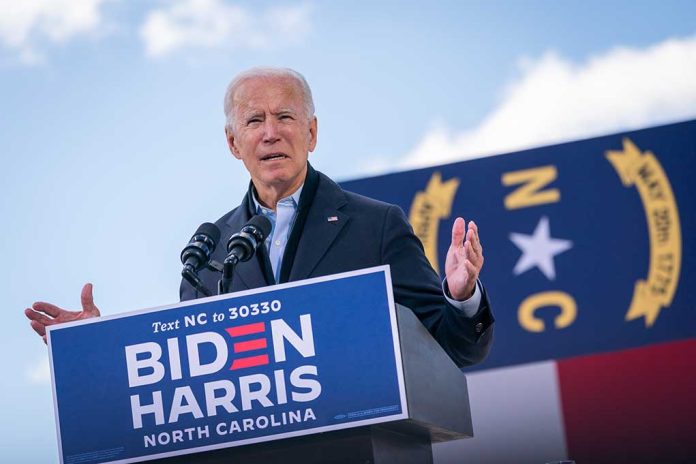
The U.S. 8th Circuit Court of Appeals has dealt a final blow to President Biden’s $500 million student loan forgiveness plan, raising questions about the future of debt relief for millions of borrowers.
Key Takeaways
- The 8th Circuit Court ruled that the Secretary of Education exceeded authority in designing the SAVE plan.
- Missouri Attorney General Andrew Bailey led the legal challenge, emphasizing the importance of preventing presidential overreach.
- The court’s decision prevents future presidents from implementing similar student loan forgiveness plans.
- The ruling could impact other income-driven repayment programs, potentially increasing monthly payments for millions of borrowers.
Court Strikes Down Biden’s SAVE Plan
In a significant blow for the Biden administration’s efforts to provide student loan forgiveness, the U.S. 8th Circuit Court of Appeals has quashed the $500 million Saving on a Valuable Education (SAVE) plan. The court ruled that Education Secretary Miguel Cardona had overstepped his constitutional authority in implementing the program, which aimed to provide substantial debt relief to millions of student loan borrowers.
The legal challenge, spearheaded by Missouri Attorney General Andrew Bailey and supported by several Republican-led states, argued that the Biden administration had exceeded its executive powers. Bailey celebrated the court’s decision, stating, “Though Joe Biden is out of office, this precedent is imperative to ensuring a President cannot force working Americans to foot the bill for someone else’s Ivy League debt.”
BREAKING: Court Rules Biden’s Student Debt Plan ILLEGAL!
A U.S. appeals court ruled that Biden had no authority to push his student debt relief plan, which aimed to lower payments and speed up loan forgiveness – Reuters pic.twitter.com/UTc0XpXWFS
— Libs of TikTok (@libsoftiktok) February 18, 2025
Implications for Borrowers and Future Debt Relief
The court’s ruling has far-reaching consequences for student loan borrowers and sets a precedent that could limit future attempts at large-scale debt forgiveness. Judge L. Steven Grasz, in his opinion, stated that the administration had “gone well beyond” its authority, emphasizing that Congress has been explicit when authorizing loan forgiveness in the past.
“We are hard-pressed to conclude that Congress, by directing the Secretary to enact a repayment plan with varying payments based on income over a period not exceeding twenty-five years, believed it authorized the Secretary to wipe out any remaining principal or interest of any borrower in as few as ten years of low or no payments,” wrote Judge Grasz.
This decision not only affects the SAVE plan but also raises questions about other income-driven repayment (IDR) programs. Millions of borrowers may now face higher monthly payments if forced to switch to less generous repayment options.
Political Implications and Future Challenges
The ruling has reignited the debate over student debt relief, with clear political implications. Congressional Republicans had accused the Biden administration of using debt forgiveness as a tactic to gain votes before the 2024 election. The Penn Wharton Budget Model estimated that the SAVE plan would cost taxpayers $475 billion over the next decade, fueling arguments against such large-scale forgiveness programs.
As the debate over student debt relief continues, Congress is considering proposals to repeal existing income-driven repayment plans and replace them with a system that eliminates loan forgiveness entirely. The 8th Circuit’s injunction has set the stage for a reevaluation of the executive branch’s role in student loan forgiveness, with potentially far-reaching consequences for current and future borrowers.









